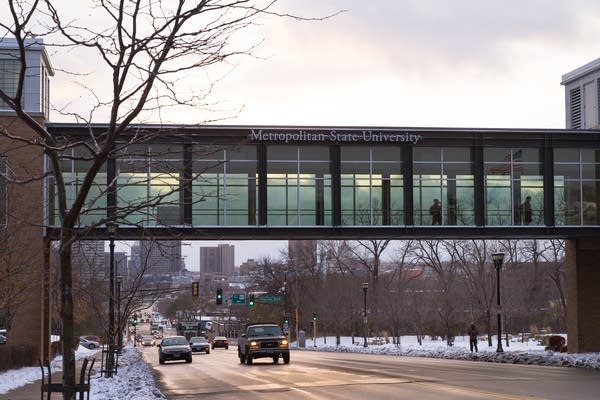MnSCU and University of Minnesota hope to extend tuition freeze

Go Deeper.
Create an account or log in to save stories.
Like this?
Thanks for liking this story! We have added it to a list of your favorite stories.
Lawmakers and state officials say they'll push for legislation in the upcoming legislative session to curb the rising costs of education even as they press campuses to provide more bang for the buck.
Politicians from both parties want "to ensure access and affordability for students, put the brakes on student debt a little bit, and meet state workforce needs," said Higher Education Commissioner Larry Pogemiller.
A focus of attention will be an extension of last session's two-year tuition freeze. Both the University of Minnesota and the Minnesota State Colleges and Universities system are asking lawmakers to fund its extension for another two years.
It's the lead item in the U of M's two-year budget request, and the university has set aside $65 million of its $127 million requested increase for it.
Turn Up Your Support
MPR News helps you turn down the noise and build shared understanding. Turn up your support for this public resource and keep trusted journalism accessible to all.
The freeze is practically the only specific thing Minnesota State Colleges and Universities (MnSCU) system is asking for this session. MnSCU's request says the freeze accounts for about half of its requested $142 million increase.
This year MnSCU has "a very short message," said Laura King, the system's CFO.
Despite the popularity of the freeze among students over the past two years, its success isn't assured.
Control of the House will shift to Republicans, and the incoming chairman of the House higher education committee, Rep. Bud Nornes, R-Fergus Falls, says he's open to a freeze.
But Nornes' counterpart in the DFL-dominated Senate, Terri Bonoff, DFL-Minnetonka, sounded a lot more critical.
"I reject the words 'tuition freeze' when people come and ask the state for money to pay for it," she said, "because that's not a freeze. That's just transferring the bill ... Whether or not we have money to invest heavily into [MnSCU and the University of Minnesota] will depend on the [budget] forecast and the will of the Legislature, but I am always an advocate to invest in our higher-ed institutions."
Todd Iverson, the U's director of government relations, said the first freeze has been very popular, and thinks the public will support it. But he acknowledged that the Senate "will probably be a tougher sell."
Commissioner Larry Pogemiller said he's pushing for a state grant increase so its maximum level covers the full $13,600 in undergraduate resident tuition and fees at the University of Minnesota. Currently the grant's maximum is about $13,000, he said.
And Pogemiller said he'd like to open up the grant to more working adults and lower- to middle-income students.
Some relief from onerous student loans might also be on the way. Bonoff said she is working with the Office of Higher Education on a state plan to refinance high-priced student loans so students can get lower rates.
And on Tuesday, state Attorney General Lori Swanson called for state regulations on how private student loans are serviced.
Minnesota lawmakers also want to hold colleges accountable for performance in areas such as graduation rates.
This month, the University of Minnesota announced it had made all five of the performance goals set by the Legislature last session as part of this year's $600 million state appropriation.
Lawmakers decided in 2013 to withhold 5 percent of the U's funding for the coming year until it met three of the five, which included raising graduating rates, producing more science-related undergraduate degrees and cutting administrative costs by $15 million, or 1.2 percent.
Bonoff says she'd like to raise the goals this session, and possibly raise the percentage of funding withheld.
Representatives from both MnSCU and the U say they're open to new goals, but would have to see the proposal first.
The Office of Higher Education has come up with its own performance measures for colleges — including the ratio of student debt to the potential earnings of recent graduates.
Bonoff said she wants to assess how well schools do there, and may consider cutting off State Grant money from those who don't pass the test.
Job placement also is an area Bonoff is targeting.
In March, the senator proposed setting state standards for apprenticeships in industries that either face worker shortages now or in the future. Advisory groups have been meeting on the topic for months, she said.
This session she wants to introduce an apprenticeship program in the fields of advanced manufacturing and information technology that enables students to earn money and get on-the-job training as they study.


